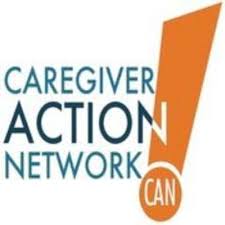I’d Rather Have Genital Warts
By Tai of Allsup
About 80 percent of sexually active people will be infected with Human Papillomavirus Virus (HPV) at some point, according to the American Sexual Health Association (ASHA).
However, you may never know you’re infected because an HPV infection usually has no signs or symptoms. Some types of HPV are responsible for genital warts and others are linked to cervical cell changes that can lead to cervical cancer.
January is Cervical Health Awareness Month, and probably the only time I will write about genital warts this year. Given the choice between dealing with genital warts or battling cervical cancer, I’d take warts. Warts are caused by low risk HPVs, rarely linked to cancer, according to the American Cancer Society (ACS), and can be treated or resolve on their own.
Cervical cancer, on the other hand, is a killer.
According to the ASHA and the National Cervical Cancer Coalition (NCCC), each year in the U.S. nearly 13,000 women are diagnosed with cervical cancer, and more than 4,000 die as a result.
Part of this is because many women are not being screened. The Centers for Disease Control and Prevention (CDC) report:
- More than half of all new cervical cancers are in women who have never been screened or have not been screened in the previous five years of their lives.
- About 7 in 10 women who have not been screened in the last five years have a regular doctor and health insurance. (The emphasis is mine.)
Cervical Cancer Screening: When and How?
All women should begin cervical cancer screening at age 21. Click here for specific guidelines based on your age and risk factors. The Affordable Care Act requires health insurers to cover preventive services such as Pap tests, which can detect precancerous cells.
Medicare also fully covers cancer screenings. However, if you need assistance finding free or low cost cervical cancer screenings, NCCC offers state-specific information here.
According to the Social Security Administration, in 2011, 16,410 women obtained Social Security Disability Insurance based on a diagnosis of cancer of genitourinary organs. That compares to 43,285 women who obtained SSDI based on a breast cancer diagnosis, and 12,226 who obtained benefits because of colorectal cancer.
There is a vaccine that protects against HPV, recommended for girls and boys who are 11 or 12 years old. The CDC reports that the vaccine is generally effective for women through age 26, and men through age 21. The Vaccines for Children program provides vaccines at no cost to children ages 18 years and younger who are uninsured, Medicaid-eligible, or American Indian/Alaska Native. To learn more, click here.
Allsup
Related Articles

Uncategorized
Helping Family Caregivers With What They Need to Know

Uncategorized
Understanding MS and Disability Benefits

Uncategorized
BIA-MO Gets Real about Brain Injury Awareness

